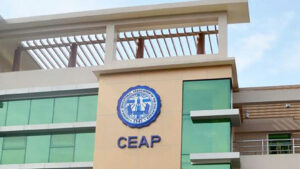GOCC reforms have improved performance since 2011 — ADB

GOVERNMENT-OWNED and -controlled corporations (GOCCs) performed better following reforms that centralized governance and enhanced transparency, the Asian Development Bank (ADB) said.
“The effect of the centralization of GOCC ownership and the associated performance management, transparency, and accountability reforms have been significant,” the ADB said in its state-owned enterprise (SOEs) reform handbook issued on Feb. 12.
The bank said 50 GOCCs were abolished, merged, or deactivated as of 2022.
At the same time, GOCCs posted improved income and dividends.
The Bureau of the Treasury reported that P136.29 billion in dividends were remitted by 52 GOCCs as of Dec. 9.
This exceeded the P100 billion target for 2024 and were up 35% year on year.
The ADB also said that during the pandemic, GOCC revenue grew to $27.25 billion in 2021 from $11.3 billion in 2011.
“There were also increases in performance on nonfinancial measures. Stakeholder satisfaction surveys showed an improvement in GOCC performance among key stakeholders, presumably because of the performance scorecard system,” it said.
It was referring to the corporate governance scorecards issued to 84 SOEs by the Institute for Corporate Directors.
It said the performance of GOCCs was “on par or even better than private sector equivalents.”
In addition, the state-run firms also became more effective implementors of government programs by drawing on private sector expertise and capital through public-private partnerships (PPPs), the ADB said.
These projects included health, water, airport, and electricity works.
Additionally, PPP projects are planned to include GOCC port, urban development, and renewable energy initiatives.
“GOCCs have had a history of poor performance, being directed by multiple ministries and subject to political and noncommercial directives, creating inefficiencies and substantial debt burdens for the economy,” it said.
The ADB said that the state-run firms were “compelled to refrain from increasing prices for their services such as public transportation fares — and to be lenient in collecting unpaid fees — like agricultural water usage charges — to avoid public backlash.”
These were later addressed through the GOCC Governance Reform Act or Republic Act No. 101049 in 2011.
It led to the creation of the Governance Commission for GOCCs (GCG), which oversees and sets policy and management guidance for the state-run firms.
The current issue involving GOCC governance involves how the government accesses the corporations’ funds over and above the dividends, it said.
The Supreme Court issued a restraining order against the transfer of P89.9 billion from the reserves of the Philippine Health Insurance Corp. (PhilHealth) to the Treasury, after the P60 billion had been remitted.
The High Court will hear oral arguments on the transfers until Feb. 25. — Aubrey Rose A. Inosante




